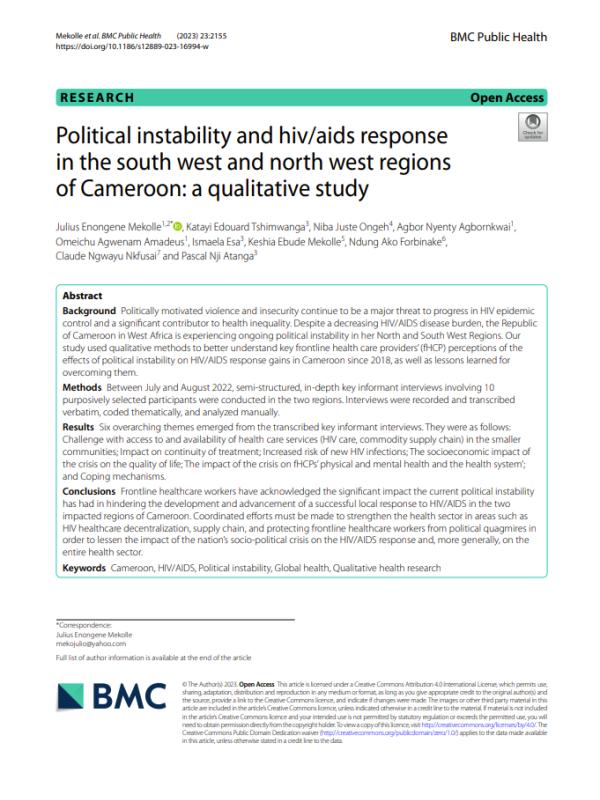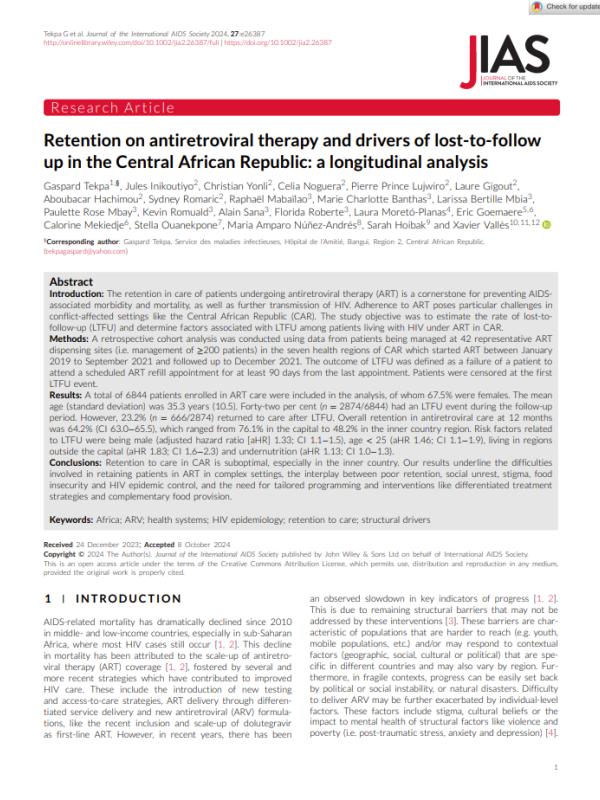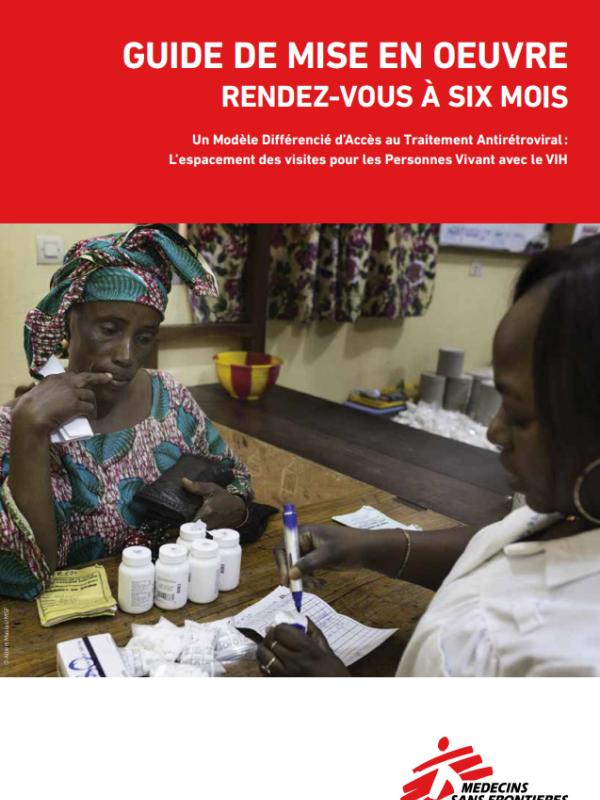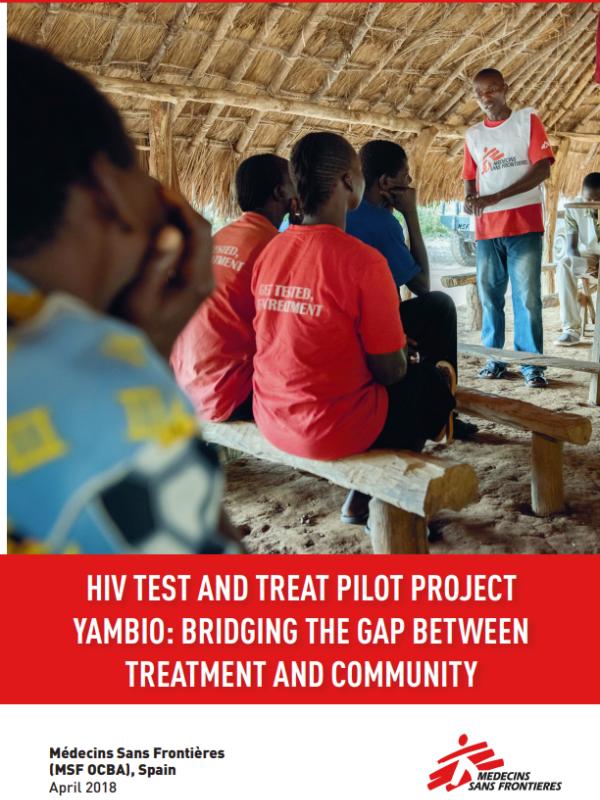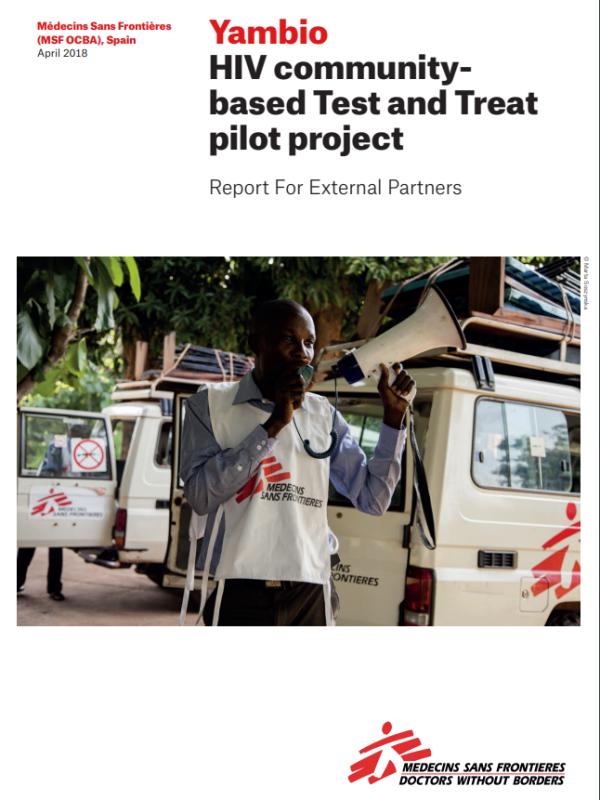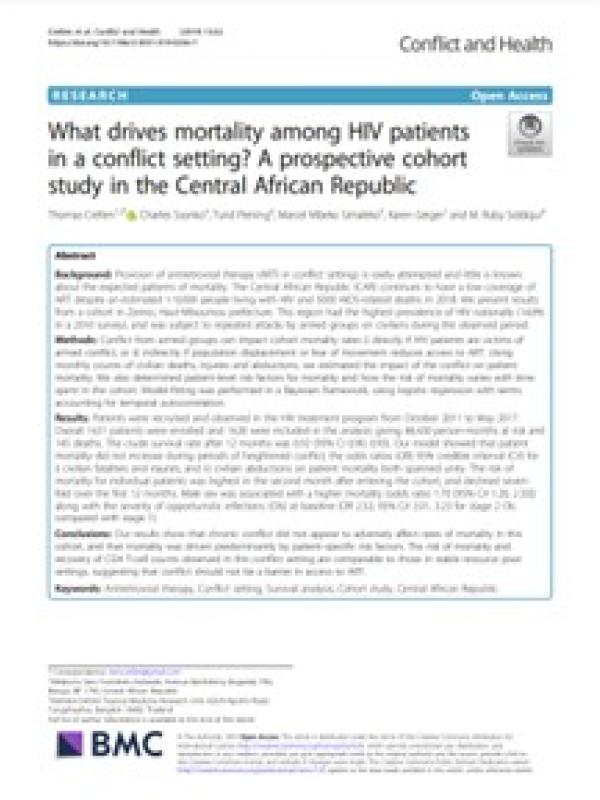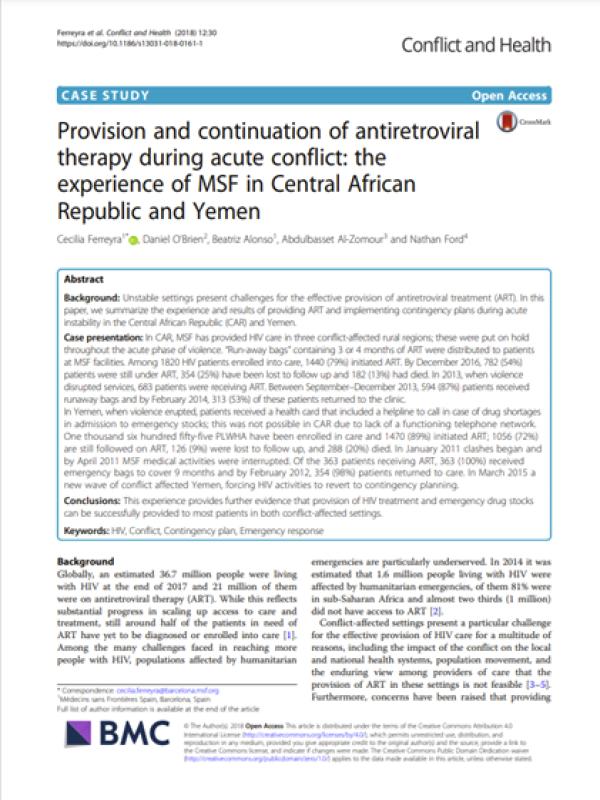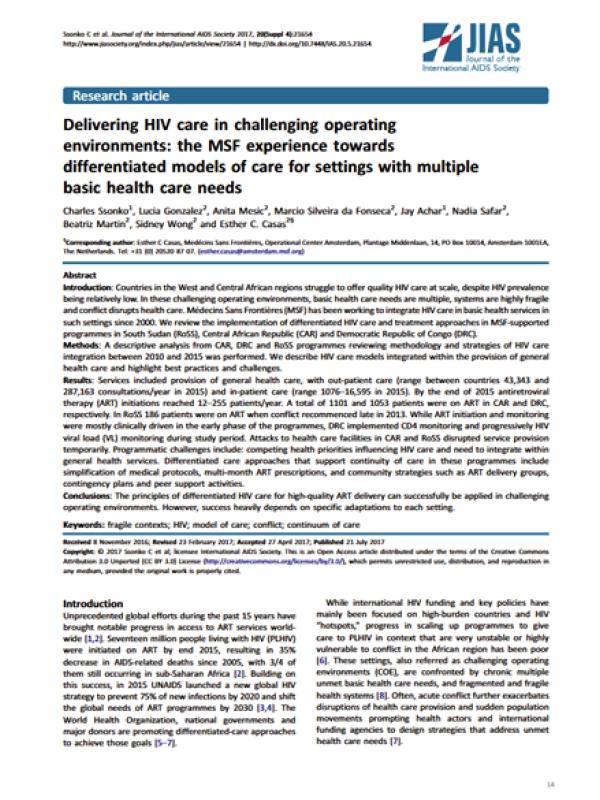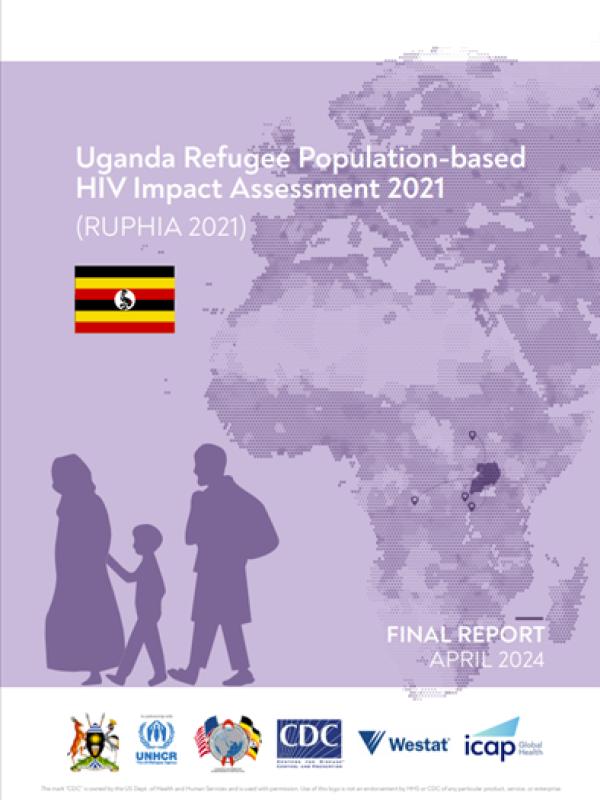This study explores whether current policies and services adequately address the SRHR and HIV needs of adolescent girls and young women in emergencies, and identifies missed opportunities to support those living with HIV. A scoping review of literature (2002–2017), desk review of guidance documents, and expert consultations informed the analysis.
Continue readingThe study explores the impact of political instability in Cameroon's North and Southwest Regions on HIV/AIDS response efforts. Through interviews with frontline healthcare providers, six key challenges were identified: access to healthcare services, continuity of treatment, risk of new infections, socioeconomic impacts, effects on healthcare workers' well-being, and coping mechanisms. The findings highlight the need for coordinated efforts to strengthen the health sector, decentralize HIV care, improve supply chains, and protect healthcare workers to mitigate the crisis's impact on HIV/AIDS response and overall health services.
Continue readingThe retention in care of patients undergoing antiretroviral therapy (ART) is a cornerstone for preventing AIDS-associated morbidity and mortality, as well as further transmission of HIV. Adherence to ART poses particular challenges in conflict-affected settings like the Central African Republic (CAR). The study objective was to estimate the rate of lost-to-follow-up (LTFU) and determine factors associated with LTFU among patients living with HIV under ART in CAR.
Continue readingGuide de Mise en oeuvre rendez-vous à six mois - Un Modèle différencié d’Accès au Traitement Antirétroviral avec espacement des visites pour les personnes vivant avec le VIH.
Continue readingBrochure presenting the Yambio HIV test and treat pilot project implemented by MSF in South Sudanin view of bridging the gap between treatment and community.
Continue readingReport to external partners describing the Yambio HIV community-based Test and Treat (T&T) pilot project meant to assess T&T feasibility and acceptability (‘Treat All’ as set out in WHO guidelines) through a community-based mobile HTC programme including same day antiretroviral (ARV) treatment initiation and the delegation of tasks to less specialised health staff. MSF wanted to document whether bringing HIV testing and treatment closer to patients’ homes, with simplified protocols and tools (‘Treat All’), would result in treatment outcomes similar to those of facility-based care.
Continue readingEstimation of the impact of the CAR conflict on patient mortality and definition of patient-level risk factors for mortality
Continue readingArticle summarizing the MSF experience and results of providing ART and implementing contingency plans during acute instability in the Central African Republic (CAR) and Yemen.
Continue readingResults from a descriptive analysis from CAR, DRC and South Sudan MSF's HIV care models integrated within the provision of general health care and highlighting best practices and challenges.
Continue readingHousehold-based survey to measure the impact of the national HIV response among adults (aged 15 years and older) living in refugee settlements in Uganda, conducted from October 2021 through December 2021
Continue reading
